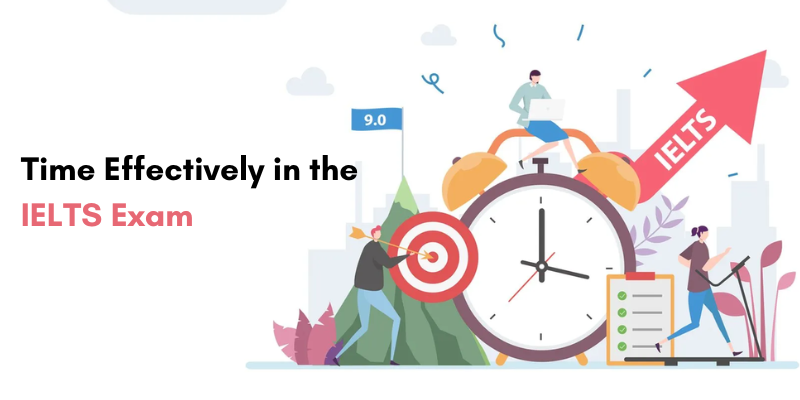Time management is one of the most crucial skills for success in the IELTS exam. Whether taking the IELTS for academic or general purposes, mastering time allocation for each section is key to maximizing your score. Each section of the exam—Listening, Reading, Writing, and Speaking—requires careful attention to the clock. In this blog, we’ll discuss how to manage your time effectively, focusing on the IELTS Reading Test time, Listening time in IELTS, and handling your IELTS reading time for optimal performance. These strategies are also commonly taught in top programs, like IELTS Coaching in Chennai.
Understand the Time Allocation for Each Section
Before diving into specific strategies, it’s essential to understand the time allocation for each section of the IELTS exam. The test lasts for approximately 2 hours and 45 minutes, divided into four main sections:
- Listening: 30 minutes
- Reading: 60 minutes
- Writing: 60 minutes
- Speaking: 11–14 minutes (usually held on a different day)
Managing your time efficiently means being aware of these constraints and practising accordingly. Whether you’re focusing on Reading in IELTS or working on your Listening skills in IELTS, knowing your time limits will help you structure your practice sessions effectively.
Mastering the IELTS Reading Test Time
The IELTS Reading Test time is one of the most challenging aspects of the exam. With 60 minutes to read three long passages and answer 40 questions, time can quickly slip away. A common mistake candidates make is spending too much time on one passage or question, leaving little time for the others.
Here’s how to effectively manage your reading time in IELTS:
- Skim and Scan: Instead of reading every word, focus on skimming the text for the main idea and scanning for specific information related to the questions. This saves time and helps you locate answers quickly.
- Allocate Time for Each Passage: Spend 17–20 minutes on each passage. This ensures that you have enough time to address all the questions. If a question is too difficult, skip it and return later.
- Practice Under Timed Conditions: When preparing for the Reading in IELTS, simulate exam conditions by timing yourself. This helps you get used to the pressure and improves your ability to pace during the actual test.
Efficiently Managing Listening Time in IELTS
The Listening time in IELTS is relatively short, with only 30 minutes to answer 40 questions across four sections. Unlike the Reading section, the audio is only played once, so managing your focus and time is essential.
Here are some tips to manage your listening time in IELTS effectively:
- Read the Questions First: Before each listening section begins, you’re given a short time to read through the questions. Use this time wisely to familiarize yourself with what you’ll be listening for, which helps you stay focused.
- Write Short Notes: Jot down keywords while listening. Don’t try to write long sentences—this can make you miss crucial information. Instead, focus on writing down important details that will help you answer the questions.
- Review Answers in the Last Minutes: In the final 10 minutes, you will transfer your answers to the answer sheet. Use this time to double-check your answers and make sure everything is filled in correctly.
Prioritize Sections in Reading Time in IELTS
As mentioned, the reading time in IELTS can be tricky. Each passage is longer than the last, and the questions may become more challenging as you progress. To manage your time wisely:
- Tackle Easier Sections First: If you find the first passage relatively easy, answer those questions quickly. This saves more time for the more complex passages that follow.
- Watch the Clock: Don’t lose track of time. If you spend more than 20 minutes on one passage, move on. Even if you don’t finish every question, answering most correctly is better than rushing through all sections with mistakes.
- Keep Calm: Panicking can cause you to waste valuable time. If a question stumps you, move on and come back later if time allows.
Mastering the IELTS exam requires not just language proficiency but also effective time management. By understanding the time constraints and applying strategic techniques for the IELTS Reading Test, Listening section, and Writing tasks, you can make the most of every minute. Practicing consistently under timed conditions is essential for success, and this is where IELTS Coaching in Bangalore can be invaluable. Staying calm during the test and focusing on efficient reading and listening strategies will significantly improve your performance. With the right approach, managing time in the IELTS exam will become second nature, helping you achieve your desired score.



